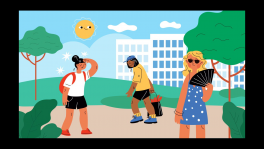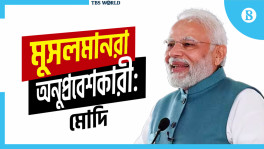Vaccine licensing, production, and global distribution
Although much of the current Covid-19 vaccine debate is focused on the question of waivers for intellectual-property rights, the transfer of knowledge and technology is only the first part. Equally important are global manufacturing capacity and pricing, either of which could still pose a problem.

MILAN – At this point in the pandemic, the key question is whether vaccine production can be ramped up quickly enough to allow most people to be vaccinated relatively soon. But implicit in that question is another: whether and under what circumstances it is appropriate to suspend domestic and internationally agreed intellectual-property rights. The matter is being discussed in the World Trade Organization now that US President Joe Biden's administration has surprisingly come out in support of a Covid-19 waiver, exposing a rift between Western governments.
Most agree that if any set of conditions justifies a waiver, this pandemic surely meets them. The millions of lives threatened by the virus ought to trigger a shared sense of humanity. And vaccination is a public good, because everyone's safety ultimately depends on everyone else's. In some cases, governments have co-invested with companies in vaccine development, strengthening the case for mandatory licensing. But whatever we do to provide it must not produce adverse or unintended consequences that could impair our responses to future crises of this kind.
We need to start with a basic question: would the proposal under discussion waive IP rights, or would it simply allow for compulsory licensing, under which the company retains its IP rights and the right to earn a return from them? Of the two, compulsory licensing is preferable. By acknowledging that the creator is entitled to a return, it would minimize the adverse effect on future incentives.
Of course, an important variable is what, exactly, is being licensed. Are we talking about the chemical composition of the drug itself, or does the license extend to all of the technology embedded in a scaled-up production process? Increasing global production would most likely require both. But, because proprietary manufacturing technology is not necessarily drug-specific, mandatory licensing in this case could affect the production of other drugs, raising concerns about fairness and the rate of return on investment. Moreover, transferring production technology is not always easy.
Manufacturing capacity is another significant variable. How much is there now, and how much more would need to be built quickly to ensure high-quality output if IP is transferred? Whatever the precise answers, the point is that even if the IP issue can be resolved, manufacturing and distribution will remain binding constraints, alongside a third key variable: price.
Public-health experts and policymakers generally have balked at charging for vaccination, because it would run counter to the objective of immunizing everyone. But in the current context, the customers buying the vaccines are primarily governments or multilateral institutions, which means that there are at least two prices to be determined. One is the mandated royalty paid to the original producers, presumably the companies licensing the IP. But then there is the price paid by governments to those licensees, which may or may not be domestic companies.
The overarching long-term priority is to preserve the incentives for major drug companies to invest heavily and rapidly in the response to the next crisis – as they did in this one. These are risky investments. The royalties, in the aggregate, need to be set to produce substantial returns for the successful producers, and also a return on IP embedded in the manufacturing technology. More to the point, the incentive must remain strong enough to persuade all such companies to take on the risk of failure.
Some will argue that the return to successful vaccine producers is already high from sales to developed countries. That may well be true, but we can't simply assume it. It is a question that will need to be sorted out in the WTO. Less uncertain are the principles that must be upheld now and in future crises like this one. For the investing company, the expected returns on vaccine development (which includes the probability of failing) should be neither inappropriately low nor prohibitively high. It is a common mistake to look only at the returns to the companies that succeed.
The fairest way to think about this is to base prices on the per capita income of the country whose government is buying the vaccines. (Depending on their mission, aid agencies and nonprofits can further subsidize purchases.) But since discriminating between countries opens the possibility that unscrupulous entrepreneurs and governments may game the system via trans-shipping, an international institution like the United Nations ideally would negotiate for and buy large quantities of vaccines for distribution to countries below a certain income level.
The Covid-19 Vaccine Global Access (COVAX) facility, launched in 2020 by the World Health Organization, Gavi, the Vaccine Alliance, and the Coalition for Epidemic Preparedness Innovations, is intended to do this, with funding from advanced economies. It is a good idea and should be retained. But while it has made progress in acquiring and distributing vaccines, it is underfunded and subject to the same supply problems (vaccine nationalism, licensing requirements, and manufacturing bottlenecks) as developing countries typically face.
It is to be expected that countries where vaccines are developed will meet their own needs first. As such, the only real solution at the global level is to scale up manufacturing capacity in as many places as possible.
In considering the lessons learned so far from this crisis, two final points stand out. First, critical decisions should not be made unanimously, with everyone wielding a veto. That is a recipe for delay and inaction. Instead, we need a responsible, broadly representative body like the UN to declare a global emergency, which should then trigger pre-specified arrangements. Negotiating global manufacturing and IP choices in the middle of a pandemic is not ideal.
Second, there remains a large and urgent peak-load problem in manufacturing. Peak-load capacity is expensive, because although it is not used most of the time, its absence during moments of crisis can result in much higher mortality and longer disruptions. The private sector cannot solve this problem. Insofar as there is a global public interest in carrying excess pharmaceutical manufacturing capacity, governments, in the aggregate, must figure out how to pay for it.
Michael Spence, a Nobel laureate in economics, is Professor of Economics Emeritus and a former dean of the Graduate School of Business at Stanford University. He is Senior Fellow at the Hoover Institution, serves on the Academic Committee at Luohan Academy, and co-chairs the Advisory Board of the Asia Global Institute. He was chairman of the independent Commission on Growth and Development, an international body that from 2006-10 analyzed opportunities for global economic growth, and is the author of The Next Convergence: The Future of Economic Growth in a Multispeed World.
Disclaimer: This article first appeared on Project Syndicate, and is published by special syndication arrangement.


 Keep updated, follow The Business Standard's Google news channel
Keep updated, follow The Business Standard's Google news channel
















